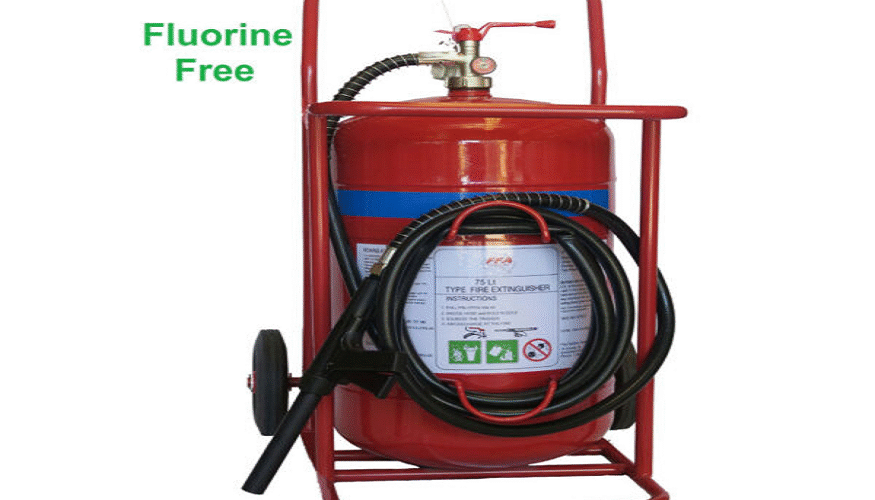Grease fires are one of the most common and dangerous types of kitchen fires. They can start in seconds and quickly escalate into a serious emergency. Despite how frequently they occur, many home cooks and even seasoned chefs still handle them the wrong way—often relying on instinct rather than safety knowledge. The difference between a small flare-up and a devastating kitchen blaze usually comes down to how quickly and correctly the fire is handled.
So, what’s really going wrong in the average kitchen? Let’s break it down.
Why Grease Fires Are So Dangerous
Grease reaches its ignition point much faster than most people realise. When oil gets too hot, it begins to smoke, and shortly after, it can burst into flames. What makes grease fires especially dangerous is how they react to common responses.
Water, which most of us instinctively reach for during any fire, can make a grease fire dramatically worse.That’s how kitchen fires spread to curtains, cabinets, and sometimes entire homes.
The Common Mistakes Chefs Keep Making
One of the most frequent errors is trying to move the pan. In the heat of the moment (quite literally), many people try to take the flaming pan off the stove. But this can lead to spills and burns, not to mention spreading the fire. Others throw flour or baking powder on the flames, assuming it’s like baking soda—but this can fuel the fire further.
Another mistake is assuming that all fire extinguishers are the same. Not all extinguishers are safe for grease fires. Using the wrong type can cause more harm than good.
The Right Way to Put Out a Grease Fire
If a grease fire breaks out:
- Turn off the heat source – if it’s safe to do so, switch off the burner immediately.
- Smother the flames – cover the pan with a metal lid or baking sheet. This cuts off the oxygen supply and helps stop the fire from growing.
- Use the correct fire extinguisher – a Class F or multi-purpose extinguisher is ideal for grease fires.
It’s worth noting that anyone who cooks regularly should consider keeping a small fire blanket or a proper fire extinguisher from a wholesale supplier in or near the kitchen. It’s a practical, affordable safety measure that’s often overlooked until it’s too late.
Choosing the Right Equipment for the Job
It’s not enough to just have a fire extinguisher on hand .These work by forming a soapy layer over the burning oil, cutting off oxygen and cooling the surface to prevent reignition.
For commercial kitchens, larger or multiple extinguishers may be necessary. High-volume cooking, deep fryers, and commercial exhaust systems all increase the risk. In such cases, businesses often source their fire protection equipment wholesale to ensure they have adequate coverage.
Are You Buying From the Right Supplier?
Another issue lies in the source of the equipment. While it’s tempting to grab an extinguisher from the nearest hardware store, there’s more peace of mind in choosing reliable suppliers who specialise in fire safety. These providers often offer maintenance services, advice on legal compliance, and guidance on installation.
Looking up fire extinguisher suppliers near me isn’t just about convenience—it’s about finding experts who understand the local safety regulations and can recommend solutions suited to the space you’re working in.
Regular Maintenance Matters Too
Even the best extinguisher is useless if it’s not maintained. Many extinguishers sit untouched for years and then fail when needed most. In both home and commercial kitchens, extinguishers should be checked at regular intervals. That means verifying pressure levels, checking for corrosion, and ensuring the nozzle and pin are intact.
It’s a good idea to ask about servicing when sourcing through fire extinguisher companies near me. Many offer routine inspections as part of their service, which can help you stay compliant with Australian safety standards—especially important for food businesses.
Prevention Is Still the Best Option
As critical as it is to know how to respond to a grease fire, preventing one in the first place should always be the goal. Never leave hot oil unattended. Use a thermometer if you’re deep frying, and keep flammable items away from the stove. Install an exhaust fan or range hood and clean it regularly to prevent grease build-up.
And just as you wouldn’t skip knife safety or hygiene rules in the kitchen, fire safety should be considered part of basic cooking knowledge. It’s not just about protecting property—it’s about protecting lives.
Final Thoughts
Grease fires aren’t rare accidents—they’re predictable and preventable hazards that require the right response. The biggest mistake most people make isn’t just a wrong move in the moment, but the lack of preparation beforehand.
Whether you cook for your family or run a bustling restaurant, investing in the right tools, knowing how to use them, and choosing trusted fire extinguisher wholesale suppliers could make all the difference when seconds count.
There’s no glamour in fire safety, and that’s likely why it’s so often overlooked. But for something so simple, it has the power to save lives and livelihoods. Don’t wait for a scare to start taking it seriously.

